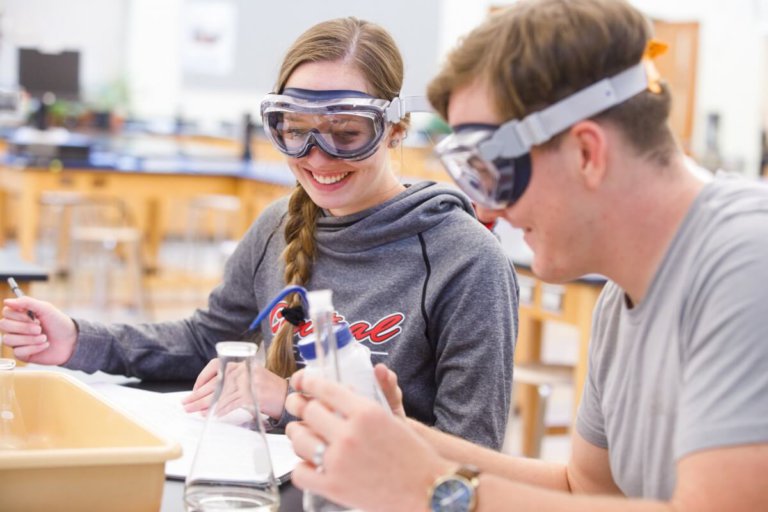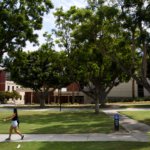
What does it take to become a leader and game changer in a competitive, tech-enabled world?
While there may not be one definitive answer, a few key attributes emerge from multiple reports, studies and employer trends. It starts with relevant academic knowledge in a respective STEM field.
Students entering college today will graduate in a world where the need to be a dynamic thinker and innovative leader with well-developed “soft skills” will be increasingly important. Employers in STEM fields value interpersonal skills, the ability to think innovatively and creatively and work collaboratively in a team.
As US News and World Report notes, “While companies used to covet tech workers primarily for their coding and IT abilities, recent business trends have pushed employers to seek those who also have impressive interpersonal skills.”
Another important element for students to increase their future employability is to complete an internship, research project or gain other hands-on work experience. Some colleges and universities incorporate experiential learning as part of the curriculum, preparing students to adapt to the future workplace.
 Students across the globe are looking for high-yield academic programmes that ensure they will be able to land jobs and launch their careers or further their studies after graduation.
Students across the globe are looking for high-yield academic programmes that ensure they will be able to land jobs and launch their careers or further their studies after graduation.
Central College in Pella, Iowa, US, is a four-year liberal arts college that integrates career preparation with the development of skills essential to empower graduates for successful careers in competitive workplaces.
The statistics speak for themselves:
- 98 percent of Central STEM graduates are employed, in graduate school or completing a year of service one year after graduation.
- An impressive 100 percent of Central’s engineering graduates from the Class of 2019 had jobs lined up before graduation.
- An astounding 58 percent of Central graduates who go to graduate school do so in health-related fields.
- Central offers a total of 12 pre-health programmes, and 90 percent of graduates in these programmes are admitted to their first- or second-choice graduate school.
Central prepares students to be entry-level experts as well as leaders and difference makers in their chosen fields and international markets.
Developing skills for the future
STEM undergraduates at Central learn a combination of technical, social, cultural, creative and communication skills needed to be collaborative problem solvers and leaders in the ever-changing world of technology.
Students get individual and personalised attention from faculty, in addition to many opportunities to collaborate with peers to create solutions that benefit the greater community.
“Really the biggest thing I’ve always wanted to tell people about Central is that it’s the most incredible four years of your life and it sets you up so well for the next eight years,” Eilers says. “I really think that Central prepared me so well for everything I wanted to do.”

Nick Richtsmeier
Nick Richtsmeier, who graduated from Central in 2001, says, “When I was trying to make my decision over where to go, I think I faced a lot of the same challenges any 17- or 18-year-old faces. You have no idea what you want. In the end, what I loved about this place is that I had the freedom to explore who I was and I didn’t have to know who I wanted to be from day one. I knew I was doing it in a place I could trust.”
Learning beyond the classroom
More than 75 percent of Central students complete an internship. Multiple avenues exist for students to gain hands-on training and learning at Central, whether through research or via work placements. Central has also established hundreds of industry connections, allowing students to receive meaningful work experiences. A total of 500 internship sites worldwide are connected to Central, and four large, international companies are headquartered within one mile of campus.
In addition, the opportunity for undergraduate research alongside faculty mentors is robust at Central. More than 100 students present research results each semester and over 40 students present at academic conferences annually.
On top of this, Central focuses on instilling students with a set of community values through service-learning opportunities. Central hosts an annual community service day, and community service components are embedded in the curriculum.
These elements of the Central experience lead Central graduates to incredible graduate school experiences and lucrative careers. Central graduates become inspiring alumni and employees that employers value and promote.
Follow Central College on Facebook, Twitter, Instagram and YouTube
Liked this? Then you’ll love…
How does systems thinking help your study skills?
The future of work: Liberal arts colleges that prepare students for a tech-enabled world







